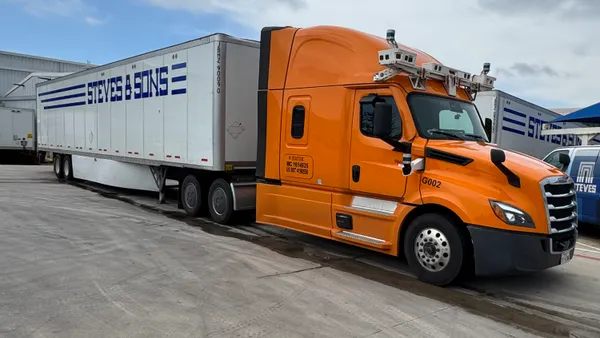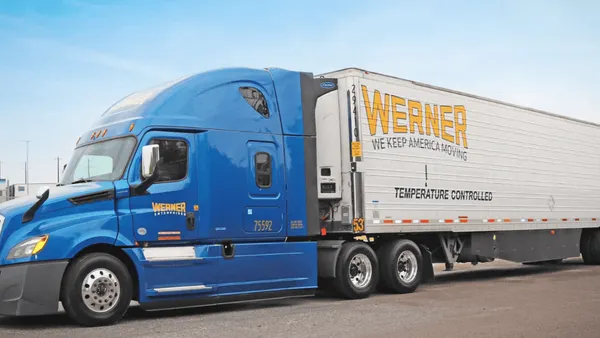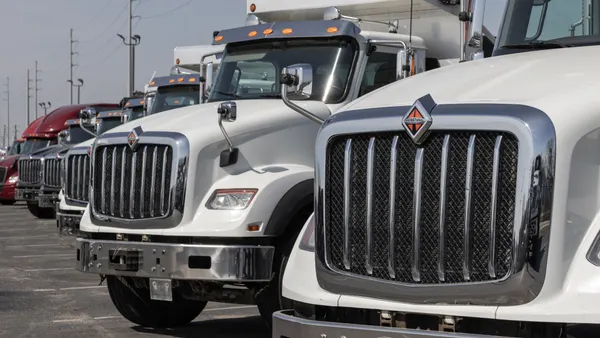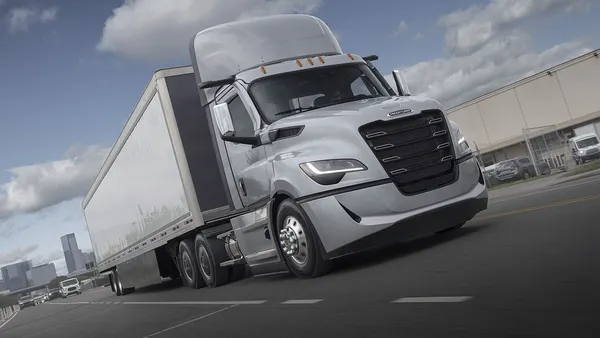A jury awarded $462 million in damages against Wabash on Thursday after a Volkswagen passenger vehicle collided with the back of a tractor-trailer in 2019 in Missouri, killing driver Taron Tailor and passenger Nicholas Perkins.
Lawyers for family members alleged the rear-impact guard completely failed and the company “spends time and money defending lawsuits like this one instead of improving” the product’s design, according to a legal filing made in a state circuit court in St. Louis.
The legal battle resulted in a hung jury and mistrial in 2023, and Wabash said Friday it’s evaluating all legal options; the company also noted additional proceedings will occur before a final judgment.
Attorney John Simon, who represented the lead plaintiffs, praised the family members involved in the case. “We commend the courage of the families who brought this lawsuit to hold this company accountable for decades of failures to keep the public safe from preventable underride crashes,” he said in a statement.
Simon’s St. Louis-based law firm alleged in closing arguments that the company failed to make safer rear-impact guards for 30 years, which would have cost Wabash about $15 million a year. That figure is highlighted through jury’s award of punitive damages for $450 million owed by the company, according to the law firm.
Trial excluded evidence, company says
The Volkswagen CC, driven by 30-year-old Tailor, went underneath the trailer on Interstate 44/55 and the rear guard tore off, according to a law firm representing the lead plaintiffs.
Wabash, trucking firm GDS Express and Tailor were co-defendents in the case. After the verdict, the trailer manufacturer said that the jury was prevented from hearing critical evidence, including the driver’s blood-alcohol content was over the legal limit at the time of the crash.
“The fact that neither the driver nor his passenger was wearing a seatbelt was also kept from the jury,” the company said in a securities filing.
The jury found that Wabash was 65% responsible and Tailor was 35% responsible in the deaths based on negligence from the company. The jury also found Wabash liable for damages for aggravating circumstances and a product defect linked to the fatalities.
Wabash defends product
The company told investors that it previously disclosed product liability claims and litigation. But quarterly and annual earnings reports since the start of 2019 did not list any litigation involving a legal dispute in Missouri; the company did note lawsuits in California and Indiana.
A company spokesperson told Trucking Dive in an email that the name of the case wasn’t disclosed.
However, the company did note in filings that it was “involved in numerous legal proceedings and governmental examinations, including class action lawsuits, in connection with the conduct of its business activities, in various jurisdictions, both in the United States and internationally.”
Wabash argued that the involved rear-impact guard in the Missouri crash was manufactured in 2004 when no alternative designs were available, suggesting that it was impossible for a different guard at that time to have changed the outcome of the crash.
Attorneys for the lead plaintiffs argued that a Canadian rear-impact guard, released two years after the guard in question, is internally graded as an “F” but sold on 90% to 95% of trailers today, according to a court filing. “Wabash is aware the Canadian RIG fails to prevent passenger compartment intrusion in certain rear end collisions, which is why Wabash implemented” another rear-impact guard in 2016, lawyers wrote.
“While this was a tragic accident, we respectfully disagree with the jury’s verdict,” Wabash’s General Counsel and Chief Administrative Officer Kristin Glazner said in a statement. “No rear impact guard or trailer safety technology has ever existed that would have made a difference here.”













